When it comes to moving overseas, safety is often one of the first questions people ask, especially friends and family back home. “Is it safe there?” they’ll say, usually with a wary look and a headline in mind. What many don’t realize, though, is that some of the safest countries in the world are beyond U.S. borders, and they offer retirees a life that’s not only more peaceful, but often more affordable and fulfilling, too.
Many of the destinations International Living covers, where our editors and contributors live full- or part-time, consistently rank among the world’s safest, according to the Global Peace Index. This annual report assesses everything from crime rates to political stability and societal security. Paired with insights from our own Annual Global Retirement Index, it gives us a clear picture of the best places to live well—and feel secure doing it.
These are places where violent crime is rare, communities are close-knit, and daily life comes with less stress…and more ease. Whether you’re drawn to the quiet coastlines of Europe or the lush highlands of Latin America, there’s a peaceful haven out there for you.
Below, we’ve compiled the 11 Safest Places to Retire in 2026, based on global rankings and firsthand experiences from expats on the ground.
The World’s Best Retirement Havens for 2026
The World’s Best Retirement Havens for 2026
24 Countries Compared, Contrasted, Ranked, and Rated. You don’t have to be rich to enjoy a pampered retirement, you just need to know where to go. With our 35th Annual Global Retirement Index, our experts hand you a detailed roadmap. Details—and a Special Offer—Here

By submitting your email address, you will receive a free subscription to IL Postcards, Overseas Dream Home, The Untourist Daily and special offers from International Living and our affiliates. You can unsubscribe at any time, and we encourage you to read more about our Privacy Policy.
11. Uruguay

By David Hammond
GPI Rank: 48
AGRI Rank: 13
Uruguay consistently ranks among the safest countries in Latin America, and after living here nearly 20 years, I agree. I’ve found life in Uruguay to be low-stress, welcoming, and secure.
Most expats choose areas with excellent reputations for safety, such as Punta del Este. It’s a summer beach resort city and education center with a growing year-round international community.
In Punta del Este, you find long sandy beaches, as well as Uruguay’s highest service standards, such as residential towers with hotel-like amenities and services. It’s also where you find the most English speakers.
During the Southern Hemisphere summer months (January and February), hundreds of thousands of vacationers from all over the region and the world visit Punta del Este. One of its biggest draws, especially for those with children and teenagers, is its reputation for safety.
Besides retirees, the expats settling in Punta del Este include remote workers who’ve made their favorite vacation spot their full-time home.
After Punta del Este, the most popular place for expats to live is in and near Montevideo, Uruguay’s capital. It’s the country’s largest city known for its tree-lined streets, large clean parks, and interesting architectural mix.
Feel like going out for a bite? Food options in Montevideo range from hot dogs to fine fusion. Live entertainment choices range from ’60s rock-and-roll to ballet.
For apartment living, the waterfront neighborhoods of Punta Carretas and Pocitos rank high for both quality of life and safety. Most apartment buildings offer enhanced security, including a porter at the entrance and/or monitored security cameras in common areas. For a single-family home in a gated community with golf and tennis, consider La Tahona, just east of the city.
I personally live in Montevideo’s Ciudad Vieja neighborhood. It’s where you find the city’s original plazas, earliest architecture, and the most museums. It’s the city’s main tourism hub, a busy office district, and where you find the Port of Montevideo. It’s a mixed-use area that’s not for everyone. But for those of us with a bohemian side, it’s a perfect fit.
Previously, street theft, such as handbag and phone grabbing, was a concern here. However, since the city installed 300 street surveillance cameras monitored in real time in 2013, incidents of theft in Ciudad Vieja decreased sharply. While you may still encounter the occasional panhandler, street robberies are extremely rare.
In Ciudad Vieja, I do most of my shopping on foot at nearby stores. Neighbors here watch out for each other. When I’ve accidentally left my coat, umbrella, or daypack at a store or restaurant, it’s always there for me when I go back to find it.
Uruguayans value egalitarianism and civil discourse. You find less economic disparity in Uruguay than anywhere in the region. Strong protections for workers, a public healthcare system, and social programs for those in need help maintain the country’s high level of social stability.
Most Uruguayans are descendants of immigrants, mainly from Europe but also from every corner of the world. They know their own family’s immigration story, and tend to be tolerant of newcomers who are respectful of the culture and seek to fit in.
As an expat in Uruguay, I feel welcome, secure, and at peace with the country’s future trajectory.
Your chance to retire overseas now
Your chance to retire overseas now
Learn more about Uruguay and other destinations by signing up to our daily IL Postcards e-letter and we'll immediately send you a free report: 20 Countries Compared, Contrasted, Ranked, and Rated.
You don’t have to be rich to enjoy a pampered retirement, you just need to know where to go.
With our 34th Annual Global Retirement Index, our experts hand you a detailed roadmap. Details and a Special Offer Here!

By submitting your email address, you will receive a free subscription to IL Postcards, Overseas Dream Home, The Untourist Daily and special offers from International Living and our affiliates. You can unsubscribe at any time, and we encourage you to read more about our Privacy Policy.
Thinking about Retiring in Uruguay? Explore our full library of resources, including cost-of-living breakdowns, visa guidance, healthcare, and the best places to live.
10. Costa Rica
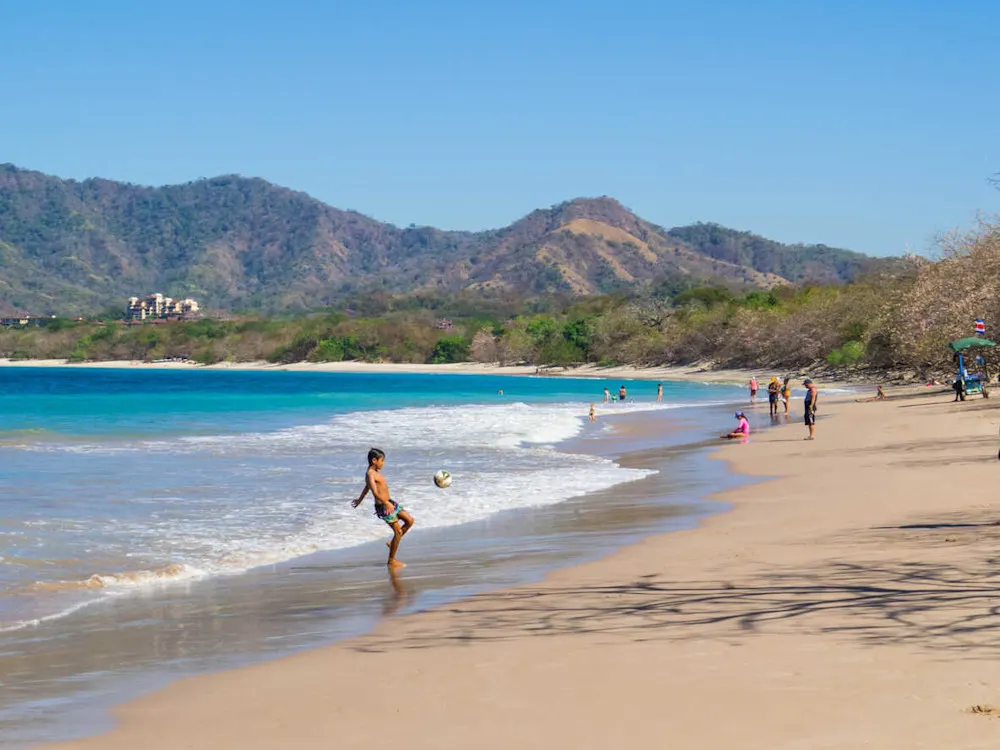
By Bekah Bottone
GPI Rank: 54
AGRI Rank: 3
Costa Rica continues to attract expats drawn to its lush jungles, pristine beaches, mountain towns overlooking the Central Valley, and majestic volcanic views. The adventure begins as you start traveling through various areas to discover what feels like home. For me, the beach was always calling—I’ve lived in the Tamarindo area since 2013, when I took out a local mortgage and built my home.
Living in a small beach town, I am grateful for the safety and connection that come from being part of a community. The friendliness of the Tico culture shines through in daily life. For example, if I get a flat tire, people are always quick to stop and help me. When I need emotional support or logistical help with my kids, I can count on my friends with a quick call or message. This sense of community reminds me that I am never alone.
As a single mother, I thank God every day that I live in a neighborhood where I feel secure. I never imagined myself living in a gated community, yet I now appreciate the peace of mind it gives me. I love that my children have a place to spend time outside with friends, and there’s a neighborhood WhatsApp group to stay connected.
That said, you may read about petty crime in Facebook Groups, usually from people who leave valuables in their cars. My advice: Don’t leave anything in your car, even if it’s only a plastic shopping bag with toilet paper. I also double-check my locks before walking away, just to be safe. On the beach, I never leave my belongings unattended; instead, I’ll often ask someone to watch my bag while I take a quick dip in the ocean.
Although Costa Rica has seen an uptick in homicides tied to organized crime and drugs, I find that this doesn’t impact my daily life. As Simone Kist, an expat living in Limón, told me, “We stay away from that type of activity and therefore don’t feel affected by it.” Loïc Pichardo, who lives south of the center of Jacó, shared a similar view: “Our community is safe, family-friendly, and just far enough from the nightlife scene. Jacó can get a bad rap, but it really depends on where you are and what lifestyle you choose.”
This sentiment is widely shared across the country. Julie Kidd, who resides in Playas del Coco, says, “I’ve built myself a community, and I feel very safe here—there’s no reason for me to look elsewhere.”
Whenever I travel within Costa Rica, I feel safe. On a recent trip to Puerto Viejo with my two children, I felt at ease exploring beaches and wandering around town, even after dark (side note: I was back in my hotel by 9 p.m.). I tend to book hotel rooms rather than Airbnbs because it makes me feel safer; yet, I’ve never had an issue with an Airbnb.
Infrastructure has also improved in recent years, with wider roads, new and repaired bridges, and the addition of new traffic lights. In my area alone, the nearest traffic light used to be 30 minutes away; now, we have three within a 15-minute radius of my home.
I’m grateful to raise my children in a place where I feel safe. Costa Rica has given us not just security, but also a sense of belonging. “We belong here” is our motto.
Get Your Free Costa Rica Report Here
Get Your Free Costa Rica Report Here
Learn more about Costa Rica and other countries in our daily postcard e-letter. Simply enter your email address below and we’ll send you a FREE REPORT - Explore the Old World in Laidback Costa Rica.

By submitting your email address, you will receive a free subscription to IL Postcards, Overseas Dream Home, The Untourist Daily and special offers from International Living and our affiliates. You can unsubscribe at any time, and we encourage you to read more about our Privacy Policy.
Thinking about Retiring in Costa Rica? Explore our full library of resources, including cost-of-living breakdowns, visa guidance, healthcare, and the best places to live.
9. Vietnam

By Wendy Justice
GPI Rank: 38
AGRI Rank: 18
At first glance, Vietnam may appear frenetic and a bit lawless, but after living here for nearly 20 years, I can’t think of a single instance in which I felt unsafe. I’ve walked the streets of Hanoi at all hours, by myself and with others, and I’ve never experienced an unwelcome incident.
One day, I was having dinner on busy “Food Street” in Hanoi. A motorbike was parked nearby, the owner inside the restaurant picking up an order for delivery. His cell phone was attached to a handlebar bracket on the bike, where it remained for several minutes until he came outside and drove away. This isn’t an unusual occurrence in Hanoi, or practically anywhere in Vietnam. People tend to be honest, violent crime is practically nonexistent, and even petty theft is rare.
Pickpocketing can occur anywhere, especially in densely packed crowds and around train and bus stations. Keep your purse or backpack secure and your wallet in your front pocket, be mindful of your phone, and don’t flash your cash on the street. Stumbling home during the wee hours after a night of heavy drinking could invite trouble, so take a taxi instead. Keep an eye on your possessions if you’re at the beach, as you would at any beach anywhere. Bag and phone snatching is nearly unheard of in Hanoi, but it does happen occasionally in Ho Chi Minh City and in the south. As long as you stay aware of your surroundings and use basic precautions, you’ll find Vietnam to be a delightfully safe country.
The greatest risk that you are likely to encounter is being overcharged by a taxi driver or a street vendor. Always agree on the price before committing to the purchase, whether it’s buying apples at the market, getting a shoeshine, or ordering from a street food stall without posted prices. To get around town, use ride-hailing apps like Grab Taxi that have fixed fares. Vietnam is an inexpensive country; if a price sounds exorbitant, you’re probably being overcharged.
Many first-timers panic when they cross the street, as cars and motorbikes don’t yield to pedestrians. The secret to safely navigating this apparent chaos is to commit to a steady, slow, and predictable pace, allowing the traffic to flow around you. For those who find this nerve-wracking, there is comfort in numbers; simply wait for a group of other people to cross and join them. In all my years of crossing the busy streets of Hanoi, I have never been hit by a vehicle.
Vietnam has recently cracked down on drunk driving, which includes cars, motorbikes, and even bicycles. Many drinking establishments now offer rides home to their customers, and the days of the streets being filled with inebriated drivers are over.
The fundamental reason for Vietnam’s safety lies in its culture of hospitality and community. It is not uncommon for people to invite a foreigner to join them for a meal or a drink, and youngsters might strike up conversations to practice their English. The Vietnamese people are kind, curious, and inclusive, and they look out for one another. Genuine hospitality is a source of national pride, which makes Vietnam one of the safest countries in the world.
Thinking about Retiring in Vietnam? Explore our full library of resources, including cost-of-living breakdowns, visa guidance, healthcare, and the best places to live.
8. Montenegro
By Julie Knox
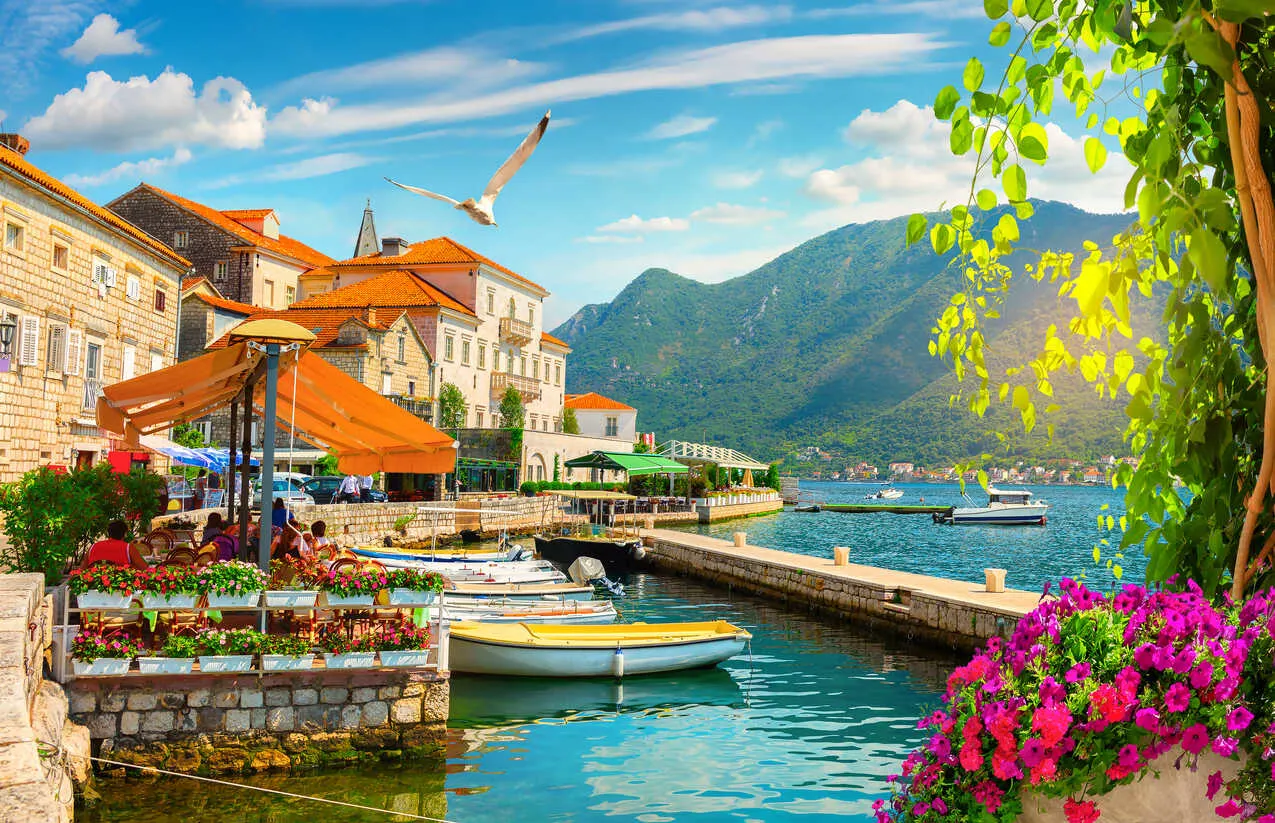
GPI Rank: 34
AGRI Rank: 21
Montenegro may not be known for standout customer service, but it offers something far more valuable: an extraordinary sense of safety. Crime is nearly unheard of in everyday life, and there is a calm, almost timeless atmosphere that puts you at ease the moment you arrive.
As a woman, I have walked the full waterfronts of both Tivat and Kotor alone, at all hours, without a second thought. Families stroll well past sunset, children play freely along the promenades, and neighbors greet each other with an easy familiarity. Sometimes it feels like stepping back in time to a place where people look out for one another.
It also helps that Montenegro is incredibly easy to navigate. You can drive from one end of the country to the other in under three hours, passing through soaring mountains, charming villages, and beachside towns. English is widely spoken, the euro is the official currency, and many nationalities can stay visa-free for up to 90 days. For longer stays, a temporary residence permit is available, and many expats begin the process by renting a home and applying with proof of income.
Affordability adds to the appeal. While prices are rising in tourist-heavy areas like Kotor, it’s still possible to rent a furnished one-bedroom apartment for $500 to $700 a month. In smaller towns inland or along the southern coast, costs can be even lower. Utilities are modest, and healthcare is available at both public and private levels, with private clinics offering short wait times and English-speaking staff.
Montenegro also makes an ideal base for European travel. From the coastal hub of Tivat, flights to much of Europe are quick and affordable—two hours to Paris, 90 minutes to Rome, and just over an hour to Vienna or Istanbul. A growing number of expats and remote workers use it as a hub, taking advantage of its laid-back pace and convenient location.
Montenegro may not yet be a household name in the world of retirement abroad, but it’s gaining quiet momentum—and for good reason. For those seeking security, natural beauty, and a simpler life in Europe, it offers a rare and compelling mix.
Considering Montenegro for retirement? Discover our in-depth guides on the best places to live and why it makes a perfect European home base.
7. Greece
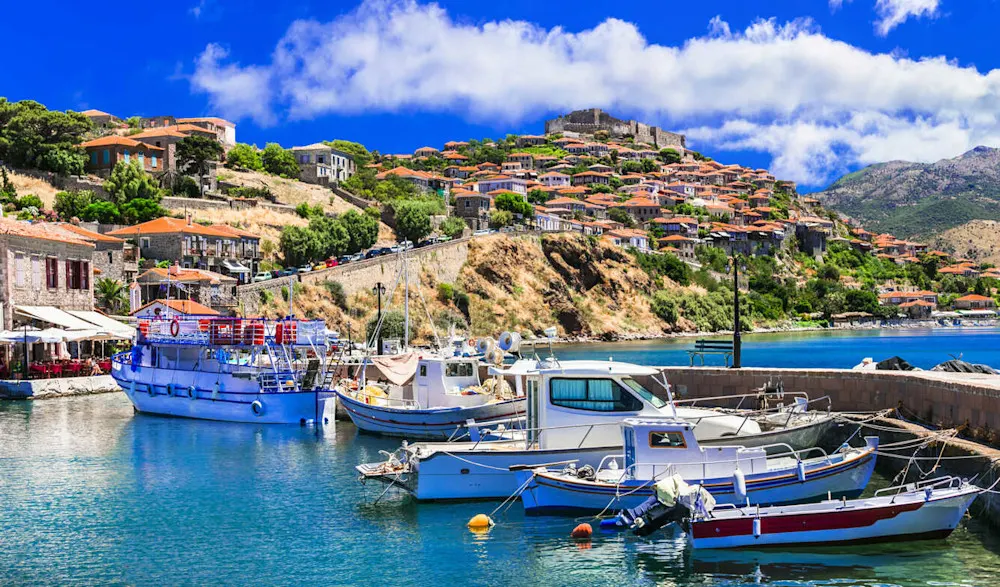
By Leena Horner
GPI Rank: 45
AGRI Rank: 1
When I am asked if I feel safe living in Greece, I usually smile and say, “Absolutely, I can sleep with my window open and my doors unlocked.” It’s true. In rural Greece, where I live, the nights are quiet except for the wind in the olive trees. I rarely see a police officer in my small village, and people don’t have Ring doorbells, bars on their windows, or home security systems. I do lock the doors when the house is empty, but at night, I don’t bother. It’s not naivety. It’s a lived reality of feeling safe in a community where crime is rare, neighbors still look out for one another, and most “emergencies” involve runaway dogs.
I can comfortably walk home alone in the dark without keys clutched in my hand like a weapon. I have friends who have left wallets or handbags at cafés or phones on beach chairs and had them returned undisturbed. Of course, I don’t want to seem like a Pollyanna; it is not a perfect world, but it’s a very different baseline. Here, people still trust each other.
The low crime statistics reflect this reality. Greece has a homicide rate of just 0.85 per 100,000 people, one of the lowest in Europe. In comparison, the U.S. sits at around 6.3, and Canada at 2.25. Violent crime remains rare, even in large cities. The crime index in Athens is higher than in rural areas—mostly due to pickpocketing in tourist areas like Monastiraki—but violent crime remains low. Thessaloniki shows similar patterns: moderate levels of petty theft, low levels of violence.
That’s not an exaggeration—the local news in my area is more likely to cover traffic accidents, new regulations, and local politics rather than any serious crime.
This stands in stark contrast to my years in Colorado. In March of 2021, a few months before I moved, a gunman opened fire at a King Soopers grocery store, my local supermarket. Ten people were killed, including two people I knew. It was devastating, but not unique. In Colorado alone, there have been more than 45 mass shootings in the past five years.
When I looked up mass shootings in Greece over the same period, I found just two incidents, and one incident was linked to an organized crime ring. That difference speaks volumes.
In places like Crete, Kalamata, Nafplio, or Sparta, people walk alone at night without carrying mace or glancing over their shoulders. If a neighbor goes away, someone else keeps an eye on their house. It reminds me of a time, or maybe a feeling, that’s become rare in many parts of the U.S.
Greece offers a kind of everyday ease that’s hard to measure but easy to feel. It doesn’t mean nothing ever happens; it means the baseline is calm. And when safety is the default rather than the exception, my nervous system relaxes, and I breathe differently.
Get Your Free Greece Report Today!
Get Your Free Greece Report Today!
Learn more about a slower pace of life in Greece and other countries in our free daily postcard e-letter. Simply enter your email address below and we'll also send you a FREE REPORT — Retire in Greece—Find Your Dream Retirement in This European Archipelago.

By submitting your email address, you will receive a free subscription to IL Postcards, Overseas Dream Home, The Untourist Daily and special offers from International Living and our affiliates. You can unsubscribe at any time, and we encourage you to read more about our Privacy Policy.
Thinking about Retiring in Greece? Explore our full library of resources, including cost-of-living breakdowns, visa guidance, healthcare, and the best places to live.
6. Italy
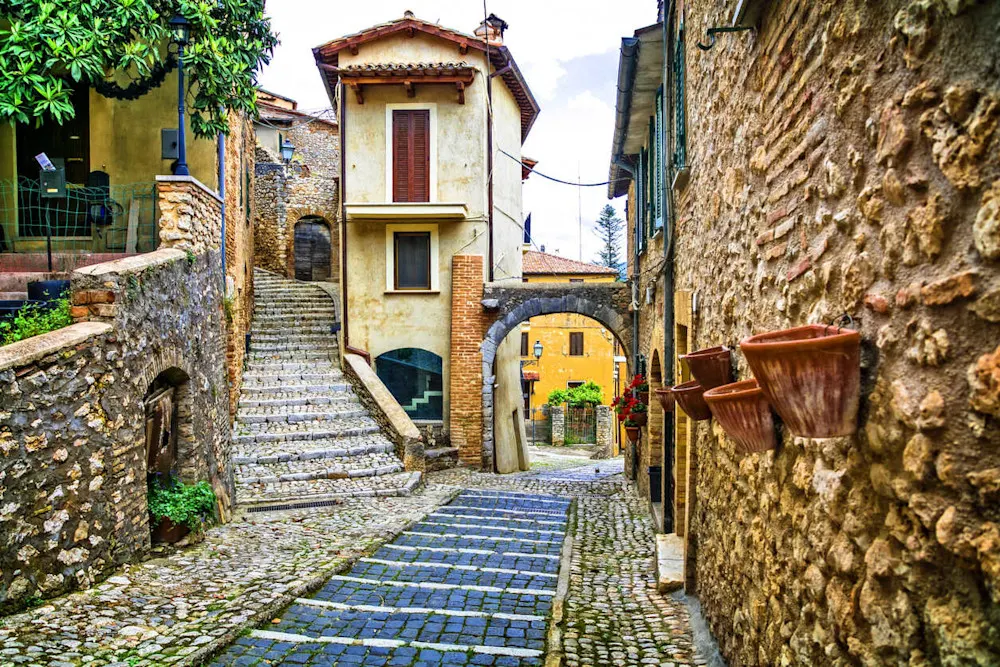
By Chip Stites
GPI Rank: 33
AGRI Rank: 6
We are in our ninth year living in Italy. We’ve been through COVID, moved houses, lost a wallet, and had a car accident that wasn’t our fault! But never in nine years have I ever felt frightened for my safety, my home, or my wife and me.
When I lost my wallet, it was returned intact—with the cash inside. When I got lost, strangers gave me directions. When I needed help, I could walk into any shop and find someone willing to assist. Never once did I feel taken advantage of.
A good example of the trust I’ve built here: once, I was buying a phone at a store. The clerk said, “Don’t buy the network package here—go to Nession, it’s 15% cheaper.” She was right. It’s not a story about physical safety, but it reflects the trust that makes you feel secure in your surroundings.
Is all of Italy like Rieti, where we live? No. Rieti is a town of fewer than 50,000 people. It’s not Rome, which welcomed 38 million tourists in July 2025, according to one source. Large cities see more petty crime, pickpocketing and purse snatching, but violent crime is low, at 0.51 per 100,000, compared to the global average of 5.61.
Italy has twice as many police officers per capita as the U.S. The U.S. sees seven times more violent crime, and 19 times more violence against women, per NationMaster.com.
Driving here has its quirks, but it’s safer than in the U.S. According to Google, Italy has less than half the road fatalities per 100,000 people. Driver training is stricter; my theoretical exam was in Italian, with 40 tough questions. I failed three times before passing. Getting my Italian driver’s license, or “patente,” is something I’m proud of.
Speeds are lower here and more tightly monitored. Tickets are steeper, too. Roads can be older and bumpier, but that just means slowing down.
Whether walking, biking, or driving, I feel less at risk in Italy. Combined with the slower pace of life and healthier food, it’s no surprise Italians live five years longer than Americans.
Life in Italy is slower, more connected—and yes, safer.
Get Your Free Italy Report Today!
Get Your Free Italy Report Today!
Learn more about Italy and other countries in our daily postcard e-letter. Simply enter your email address below and we’ll send you a FREE report – Italy: Europe’s Most Seductive Country.

By submitting your email address, you will receive a free subscription to IL Postcards, Overseas Dream Home, The Untourist Daily and special offers from International Living and our affiliates. You can unsubscribe at any time, and we encourage you to read more about our Privacy Policy.
Thinking about Retiring in Italy? Explore our full library of resources, including cost-of-living breakdowns, visa guidance, healthcare, and the best places to live.
5. Croatia
By Alice Longhurst-Jones
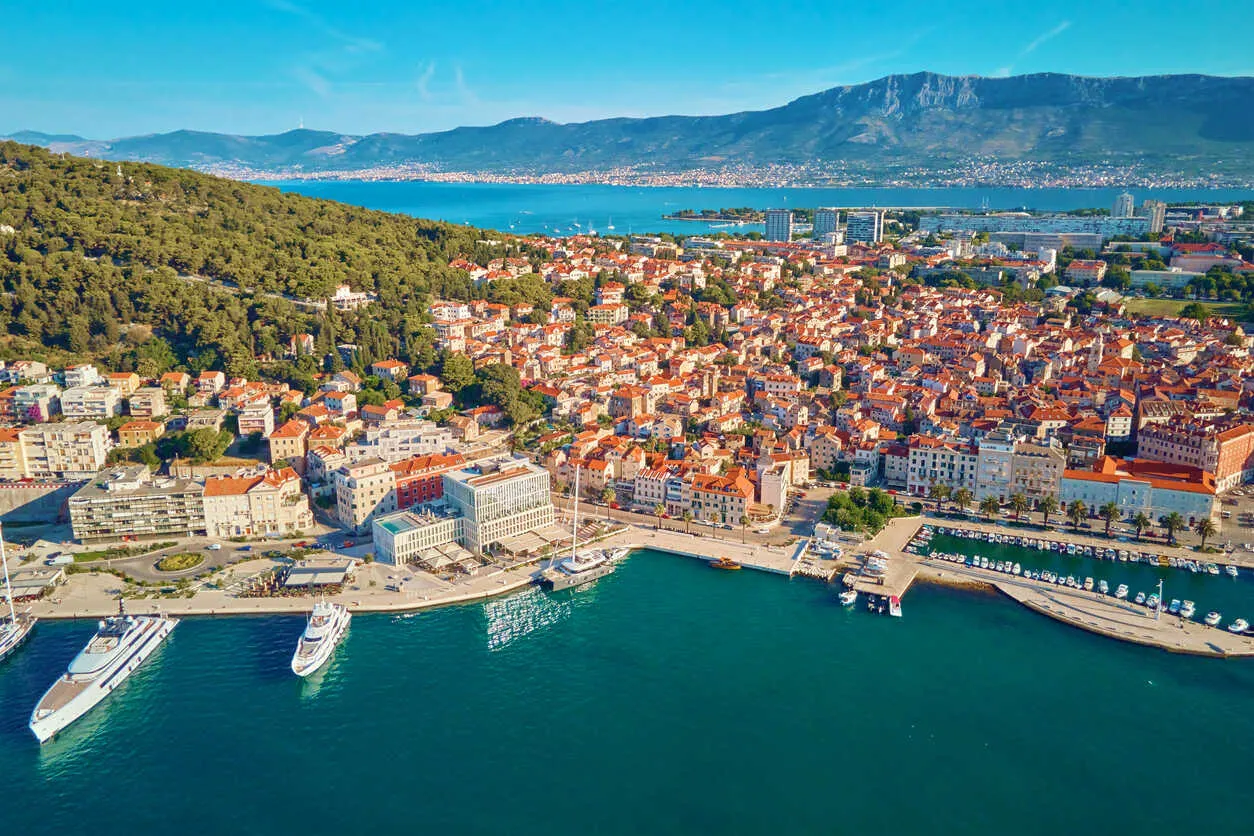
GPI Rank: 19
AGRI Rank: 19
Walking home at 1 a.m. from a friend’s party, I stood in the middle of the street admiring the Milky Way. I realized how safe I feel every day here in Croatia. I go on solo hikes, leave my bike unlocked outside the store, and never worry about getting home.
Croatia is the safest place I’ve ever lived.
Just 1.4% of Croatians report any anti-social behavior in their neighborhoods, and the homicide rate is well below the European average. Violent crime is extremely rare, and the streets are calm and peaceful. It’s the kind of place where people leave their back door unlocked or the key under the mat. Police patrol regularly on foot or by car, and every interaction I’ve had with them has been polite and respectful.
What truly sets Croatia apart, though, is the honesty and generosity of the locals. A close friend lost her phone in the street three times, and each time a kind stranger tracked her down and returned it.
Although they can seem a little frosty at first, Croatian people are generally welcoming and curious toward expats. When I’m waiting for the bus, locals often strike up conversation. They’re always curious about where I’m from and what I think of Croatia.
A few weeks ago, I went down to the river with some friends for a quick swim. When we arrived, the riverbank had been taken over by a big, boisterous group of local firefighters. Within minutes, they were pressing cold beers into our hands and pouring shots of homemade rakija. It didn’t matter that we were foreigners or that our Croatian wasn’t great—we were welcome just as we were.
Many here still hold traditional values, but everyone is accepted. Three years ago, the first dedicated gay club, X, opened in Split. Croatia is now considered one of the most LGBTQ+-progressive countries in the Balkans, thanks to its civil partnership laws and annual Pride events in Zagreb and Split.
Family is at the heart of Croatian culture, and that sense of community extends to everyone. Friends with little ones tell me it’s a wonderfully welcoming and safe environment to raise kids. From the age of nine or ten, many children walk or take the bus by themselves to school or sports activities.
Older people remain active and respected members of society, often playing chess by the beach or maintaining their gardens well into their 80s or 90s. People here look out for one another, and if you befriend them, they’ll look out for you, too. My neighbors often drop off fresh produce on my doorstep or check in when I’m sick.
I’ve been in Croatia for four years and have traveled all over the country. Whether it’s the capital city, Zagreb, or a quiet coastal town, I’ve always felt safe and secure. Croatia is not just a safe place to live, it’s a place where I truly feel at home.
Thinking about Retiring in Croatia? Explore our full library of resources, including visa guidance and healthcare.
4. Spain
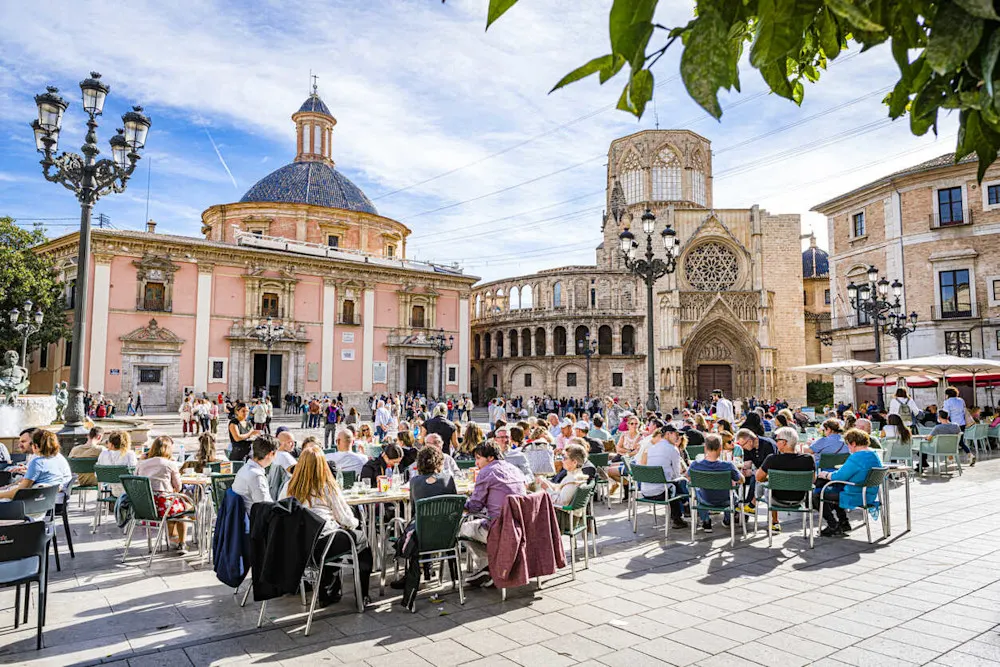
By Cepee Tabibian
GPI Rank: 25
AGRI Rank: 8
I’ve never felt safer anywhere in the world than I do in Spain, especially as a woman. I don’t have to worry about violent crime like I did in the U.S., and that gives me a sense of freedom I didn’t even realize I was missing.
And it’s not just me who feels this way, the stats agree. According to the 2025 Global Peace Index, which measures crime, war, and terrorism, Spain ranks as the 25th safest country in the world. The U.S. ranks 128th out of 163 countries.
Since my first stint in Spain back in 2001, I’ve walked these streets alone day and night and have never felt unsafe—from Madrid to Córdoba to Málaga and nearly every corner of the country. Spanish cities tend to be dense, well-lit, and full of life late into the evening, with families strolling, people dining outdoors, and kids playing in the plazas.
Public transportation here is also clean, comfortable, and safe. Women can ride the metro or bus without fear of being harassed, and it’s not uncommon to see young people giving up their seats for elders.
Spain’s strict gun laws also contribute to that sense of safety. Automatic weapons are prohibited, and firearm ownership is tightly controlled. Whether I’m at the movies or attending a crowded event, I don’t have the same low-level anxiety thinking about gun violence that I did in the U.S.
Of course, no place is completely immune from harm, we always need to stay aware of our surroundings. In Spain, the main thing to watch for is pickpocketing, mostly in touristy areas and especially in Madrid and Barcelona. Don’t keep your wallet or passport in your backpack or coat pocket, and always keep your hand on your purse in crowds (ideally wear it across your body and in front). Never place a bag on the floor at a restaurant, as it may disappear without you noticing. Stay alert on crowded buses or metros, but beyond that, you can truly relax and enjoy life here.
Get Your Free Spain Report Today!
Get Your Free Spain Report Today!
Learn more about the lower cost of living in Spain and other countries in our free daily postcard e-letter. Simply enter your email address below and we'll also send you a FREE REPORT — Live the Good Life in Sunny, Affordable Spain.

By submitting your email address, you will receive a free subscription to IL Postcards, Overseas Dream Home, The Untourist Daily and special offers from International Living and our affiliates. You can unsubscribe at any time, and we encourage you to read more about our Privacy Policy.
Thinking about Retiring in Spain? Explore our full library of resources, including cost-of-living breakdowns, visa guidance, healthcare, and the best places to live.
3. Malaysia
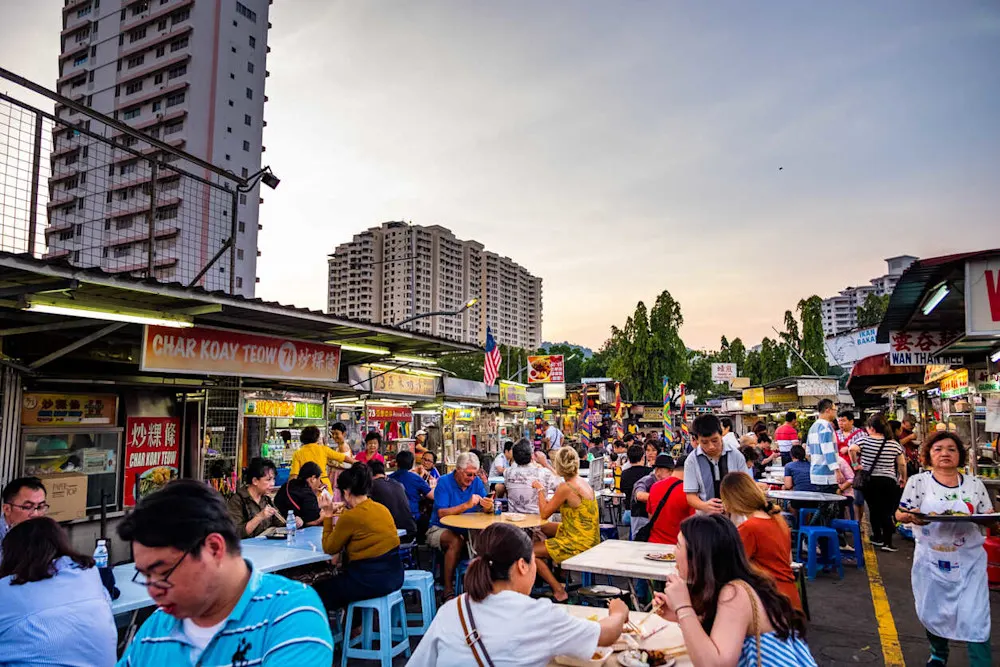
By Keith Hockton
GPI Rank: 13
AGRI Rank: 10
I’ve lived in Malaysia most of my life, and the sense of safety here quietly shapes daily life. It’s not about alarms or locked gates—it’s about how neighbors smile as you pass, how laughter floats from late-night food stalls, and how people look out for one another .
Once, after a long hill walk, I sat down by the roadside to rest. Within a minute, two men on scooters stopped to check if I was OK. They didn’t know me—but that didn’t matter. That act of kindness said everything about what safety means here.
Every morning, I walk to my local café in Tanjong Bungah. The same man waves and asks how the day looks. Drivers stop for pedestrians. Strangers hold the elevator. These little courtesies create a web of safety.
Sure, petty crime exists, but with basic common sense, Malaysia is remarkably safe. It’s normal to see people leave their wallets or phones on café tables. That trust stems from shared space, shared stories—something rare in many places today.
In the past year, I’ve seen more neighborhood watch groups form, especially in the suburbs. WhatsApp chats keep neighbors informed about stray dogs, power outages, or elderly residents who might need help. Town councils have added more lighting and CCTV—not out of fear, but as part of the community effort.
There’s also a shift toward safety as well-being. Parks are full in the evenings. Cycling lanes have appeared. Crosswalks are better marked. People feel safe not just physically, but emotionally—safe in belonging.
A Canadian visitor left his wallet at a roadside stall. Thirty minutes later, panicked, he returned. The stall owner had already passed it to a nearby shop for safekeeping. Nothing was missing. “This is Malaysia,” the shopkeeper said with a smile. “We look after guests.”
That warmth, that lived kindness, is what makes Malaysia feel safe. Safety isn’t enforced here. It’s woven into daily life.
YOUR CHANCE TO RETIRE OVERSEAS NOW
YOUR CHANCE TO RETIRE OVERSEAS NOW
Sign up for our free daily IL Postcards e-letter and we'll immediately send you a free report on the WORLD'S #1 RETIREMENT HAVEN—plus 9 more of the most desirable and very affordable destinations where you can upgrade your retirement right now. Each day you'll learn about the best places to retire, travel, buy real estate and enjoy life overseas.

By submitting your email address, you will receive a free subscription to IL Postcards, Overseas Dream Home, The Untourist Daily and special offers from International Living and our affiliates. You can unsubscribe at any time, and we encourage you to read more about our Privacy Policy.
Thinking about Retiring in Malaysia? Explore our full library of resources, including cost-of-living breakdowns, visa guidance, healthcare, and the best places to live.
2. Ireland
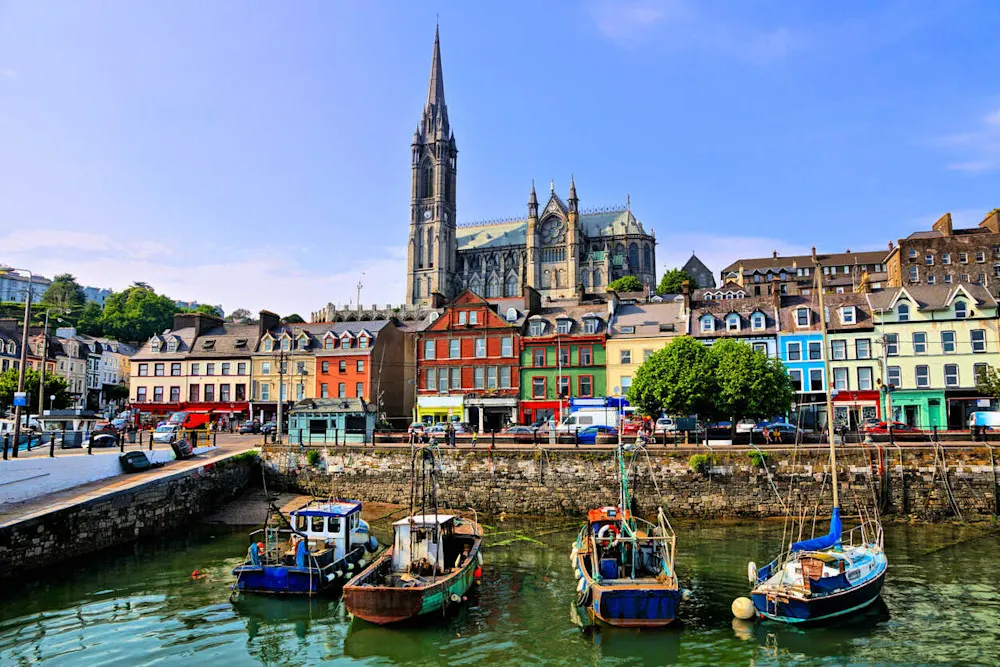
By International Living
GPI Rank: 2
AGRI Rank: 14
Ireland may not be the first place that comes to mind when considering retirement overseas, but when it comes to safety, few countries can compare. This small island nation consistently ranks among the world’s most peaceful countries on the Global Peace Index, with low crime rates, a stable government, and a strong sense of community that’s ideal for retirees seeking a welcoming environment.
In Ireland, violent crime is rare. Gun ownership is tightly regulated, and even petty crime levels are relatively low compared to other Western countries. Most towns and villages maintain a relaxed, open-door culture, and it’s not uncommon for neighbors to check in on one another or share a cup of tea just to catch up.
For many expats, one of the most reassuring aspects of Irish life is the community itself. Whether you’re in a coastal town in County Clare or a historic village in the midlands, there’s a strong social fabric here, often centered around local pubs, parish events, and volunteer groups. People are friendly, interested in newcomers, and eager to offer help or conversation. It’s easy to become a “regular,” and even easier to feel like you belong.
For Bea Conner-Pohl and her partner, Barrie Peterson, a retired couple from Nyack, New York who settled in Clonmel, the transition was immediate. “The welcoming into the community was one of the biggest differences,” Bea explains. “In the US, people want to know you for a while before inviting you in. Here, they welcomed us immediately into their organizations and activities.”
But Ireland’s public healthcare system also offers a strong safety net—residents over 70 qualify for free general practitioner visits, and many receive additional benefits like free hospital care and prescriptions through the Medical Card, depending on income. While some expats opt for private insurance to reduce wait times for non-urgent procedures, the baseline level of care is solid and accessible.
In the countryside, life moves at a slower pace. You’ll find little traffic, quiet evenings, and a general lack of stress. Many towns have local garda (police) stations, and walking alone, whether through a village or along a clifftop trail, feels safe and normal.
This sense of ease and trust is part of what makes Ireland such a satisfying choice for retirement, especially for solo travelers or those craving a gentler, more connected way of life.
Your chance to retire overseas now
Your chance to retire overseas now
Learn more about Ireland and other destinations by signing up to our daily IL Postcards e-letter and we'll immediately send you a free report: 20 Countries Compared, Contrasted, Ranked, and Rated.
You don’t have to be rich to enjoy a pampered retirement, you just need to know where to go.
With our 34th Annual Global Retirement Index, our experts hand you a detailed roadmap. Details and a Special Offer Here!

By submitting your email address, you will receive a free subscription to IL Postcards, Overseas Dream Home, The Untourist Daily and special offers from International Living and our affiliates. You can unsubscribe at any time, and we encourage you to read more about our Privacy Policy.
Thinking about Retiring in Ireland? Explore our full library of resources, including cost-of-living breakdowns, visa guidance, healthcare, and the best places to live.
1. Portugal
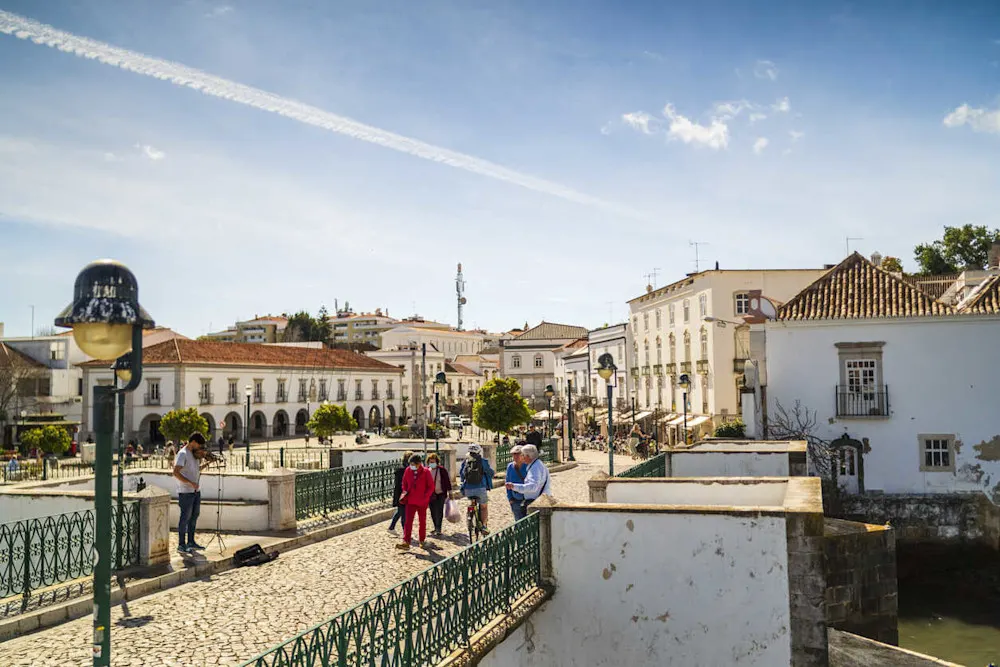
By Kimberly Anne
GPI Rank: 7
AGRI Rank: 4
Last night, as I was walking my dog around my neighborhood in Porto at 11 p.m., I was once again struck by how safe I feel here. As a solo female, I often walk alone late at night in Portugal without issue.
At midnight, you will typically see families out with their children. People carry their cell phones, visible in hand, walking without a care. It’s not uncommon to leave your cell phone and purse on a table or counter in a restaurant unattended while running to the bathroom.
When I first moved to Portugal in 2022, it was ranked the sixth safest country in the world. Now, it’s number seven in the Global Peace Index. Compare that to the U.S., which ranks at 128.
As a newcomer to Portugal, I was terrified of everything. If a car pulled up next to me as I was walking down the sidewalk, I jumped back and clutched my bag. I was afraid to walk alone at night, in the dark. As soon as I entered my car, I would auto-lock all the doors.
Thankfully, everything has changed for me, and I no longer live in fear.
There are some areas where petty theft can and does occur, such as downtown Lisbon or Porto, usually in the later hours of the night. Like any big city, you have to remain aware of your surroundings. Nevertheless, violent crime is rare. There are few guns due to strict laws.
The Portuguese are generally kind and benevolent. The mottos here are “calma” and “tranquila,” which are lived up to. The lifestyle is slower-paced, and because it’s so community-oriented, people tend to look out for one another. I often have strangers on the street offering to help me, no strings attached.
Another wonderful aspect about living in Portugal is the acceptance and inclusion of the LGBTQ+ community.
I have several queer male, female, and trans Portuguese friends who are fully supported and loved by their families. This is partly because family is a top value, and that bond often transcends traditional social views. By and large, the Portuguese people embody a “live-and-let-live” philosophy, showing little interest in the private lives of others.
I can’t speak to racism personally, but my expat friends of color report that they experienced frequent microaggressions and systemic barriers in the U.S. For the most part, this doesn’t occur in Portugal, and they report feeling safer here.
Some things are changing. Until recently, there was a five-year path to citizenship for immigrants. However, they’re most likely raising that bar to 10 years and implementing stricter regulations on new residency visas. Due to rising housing costs and inflation, some Portuguese are becoming disgruntled toward foreigners. But this presents itself not as unsafe, but as a subtle social friction absent just a few years ago.
Still, the feeling of safety on my late-night walks prevails.
Get Your Free Portugal Report Today!
Get Your Free Portugal Report Today!
Discover why we love a slower pace of life in Portugal and info on other European countries in our daily postcard e-letter. Simply enter your email address below and we’ll send you a FREE REPORT – Explore the Old World in Laidback Portugal.

By submitting your email address, you will receive a free subscription to IL Postcards, Overseas Dream Home, The Untourist Daily and special offers from International Living and our affiliates. You can unsubscribe at any time, and we encourage you to read more about our Privacy Policy.
Thinking about Retiring in Portugal? Explore our full library of resources, including cost-of-living breakdowns, visa guidance, healthcare, and the best places to live.
Final Thoughts
While we’ve highlighted ten of the safest countries for retirees in 2025, based on firsthand accounts and high marks on the Global Peace Index, they’re far from the only ones. In fact, many countries on our beat regularly outrank the U.S. when it comes to safety.
You might be surprised to learn that destinations like Thailand, France, Panama, Nicaragua, Ecuador, and others also offer a greater sense of security, along with vibrant cultures and expat-friendly communities.
The world is full of safe, welcoming places, and your ideal haven may be just waiting to be discovered.
The World’s Best Retirement Havens for 2026
The World’s Best Retirement Havens for 2026
24 Countries Compared, Contrasted, Ranked, and Rated. You don’t have to be rich to enjoy a pampered retirement, you just need to know where to go. With our 35th Annual Global Retirement Index, our experts hand you a detailed roadmap. Details—and a Special Offer—Here

By submitting your email address, you will receive a free subscription to IL Postcards, Overseas Dream Home, The Untourist Daily and special offers from International Living and our affiliates. You can unsubscribe at any time, and we encourage you to read more about our Privacy Policy.
